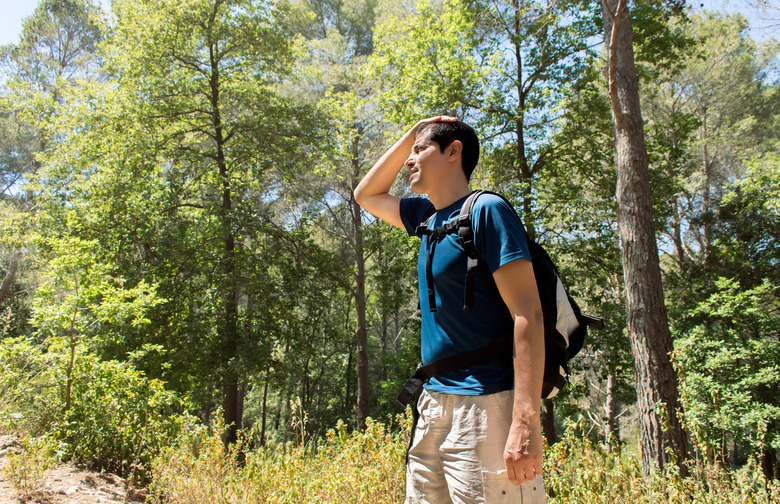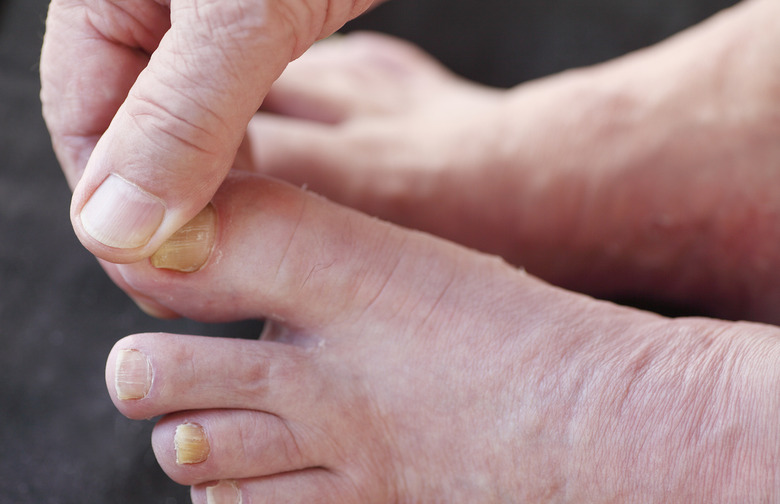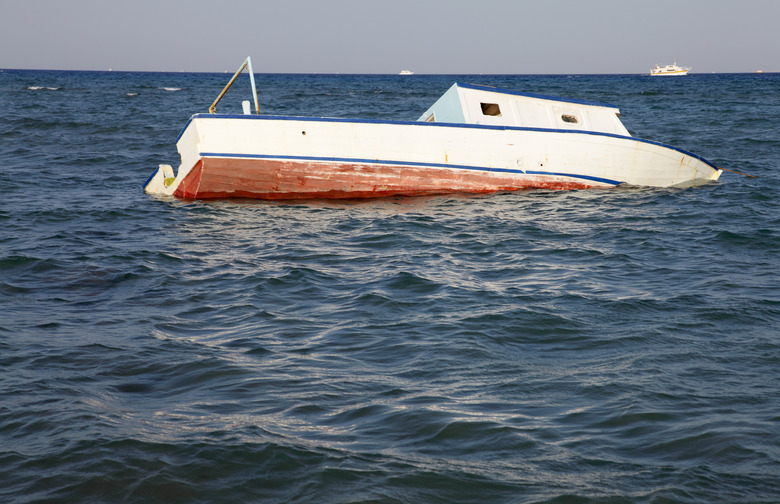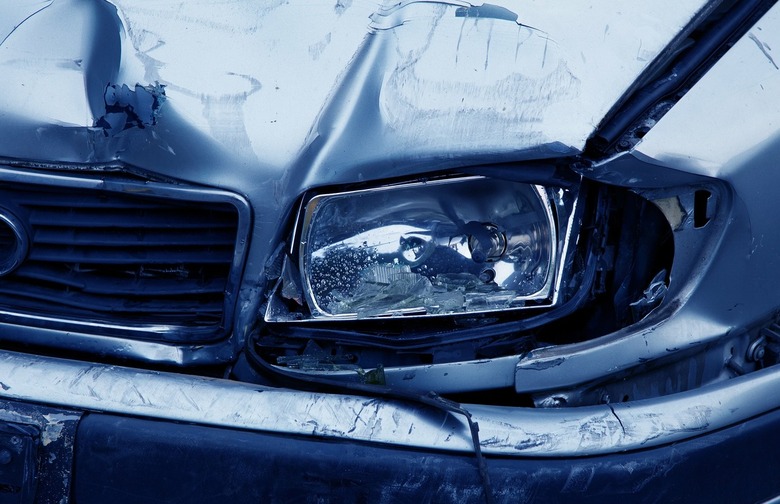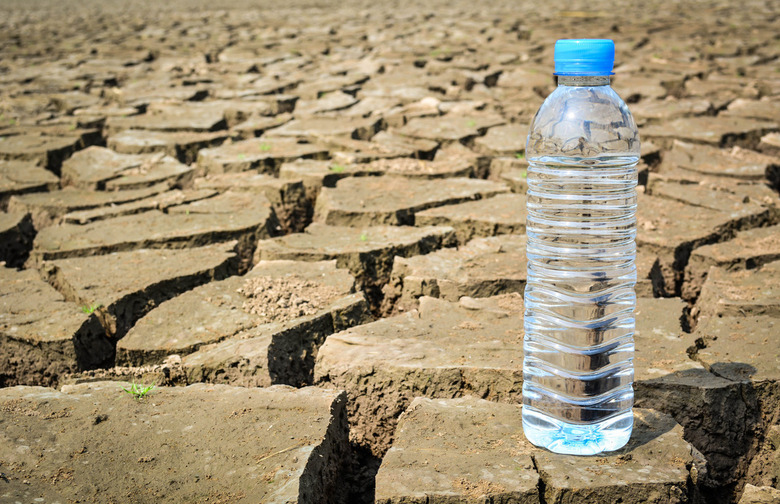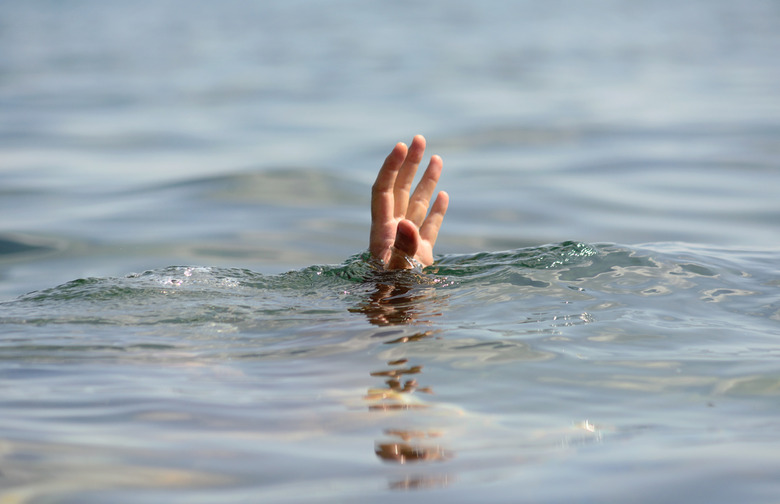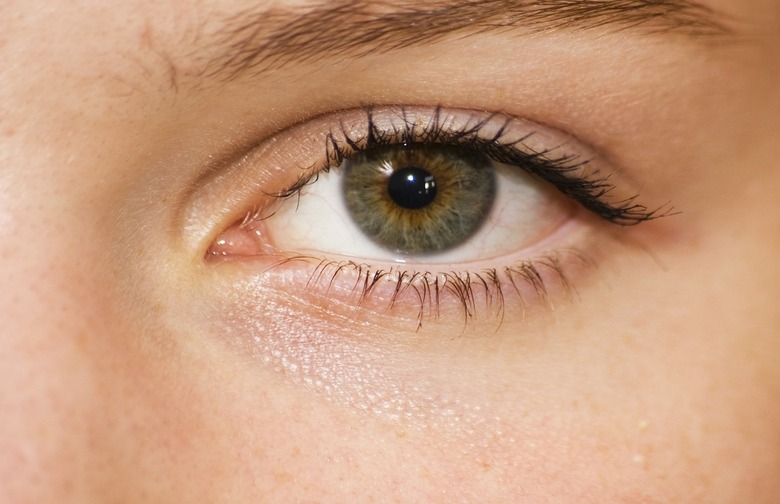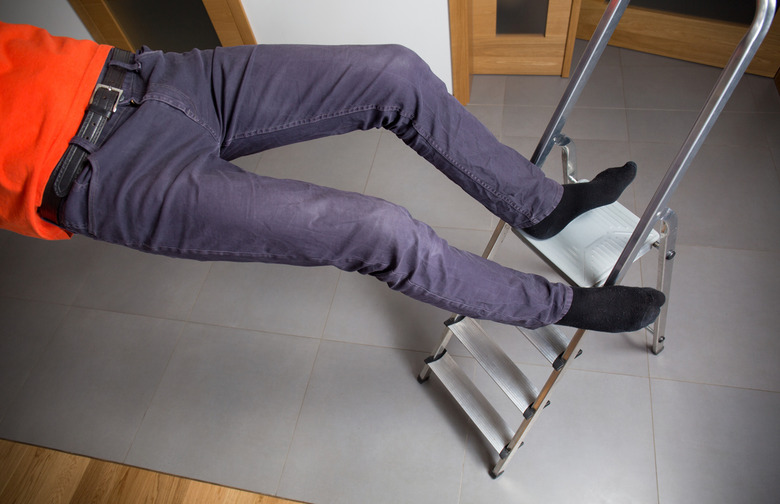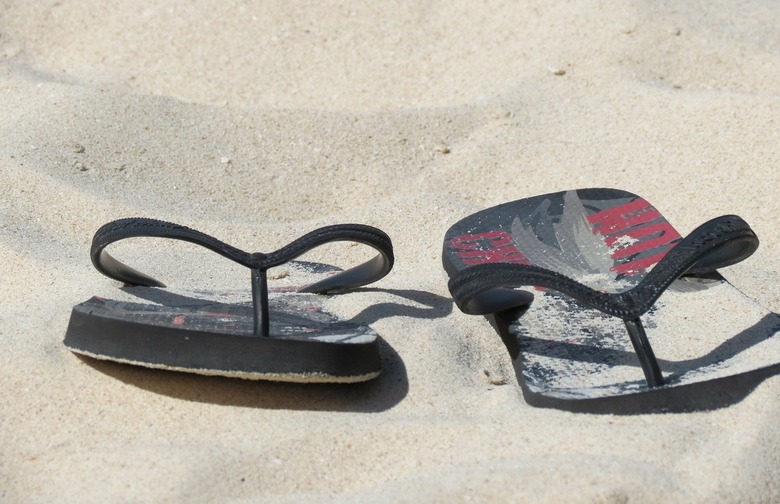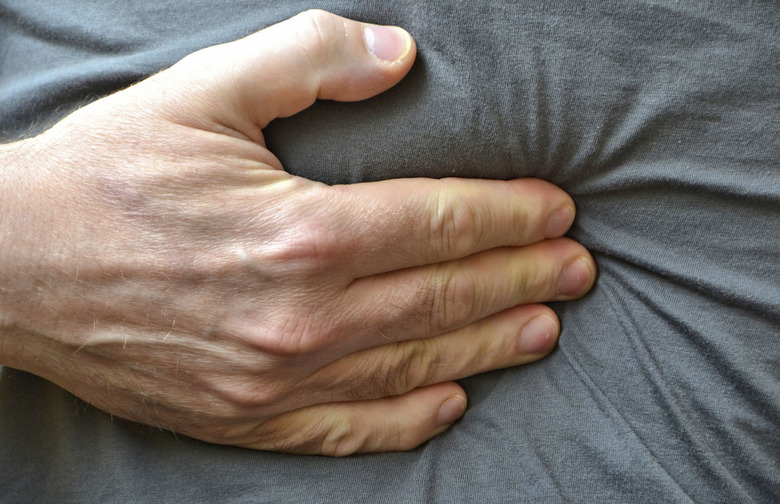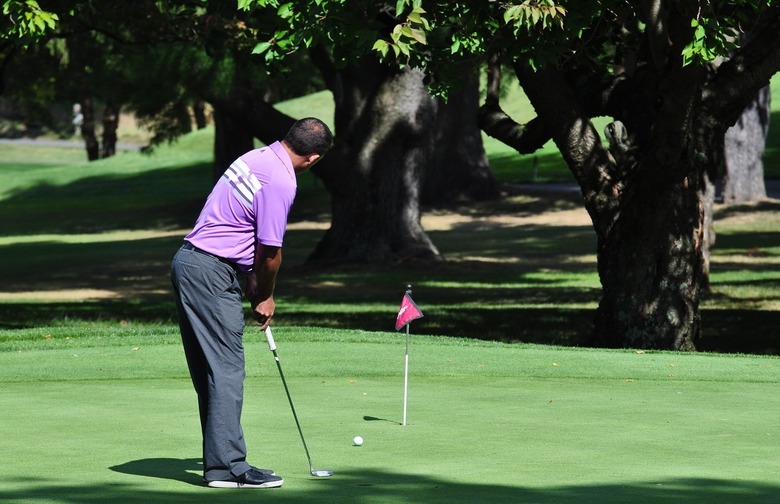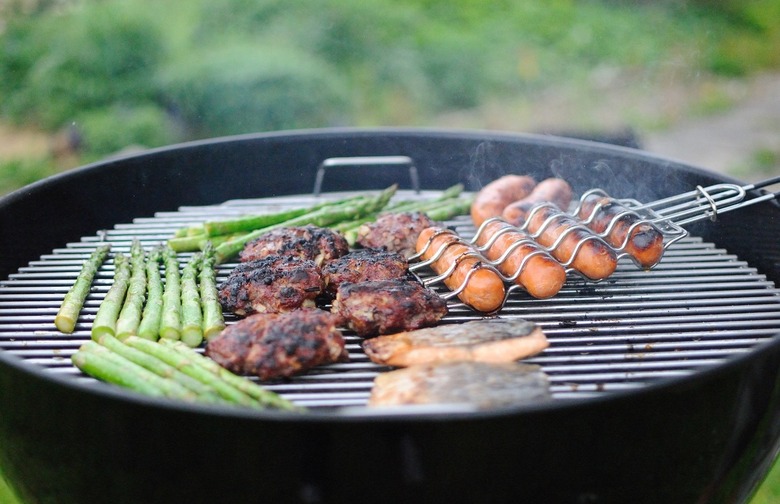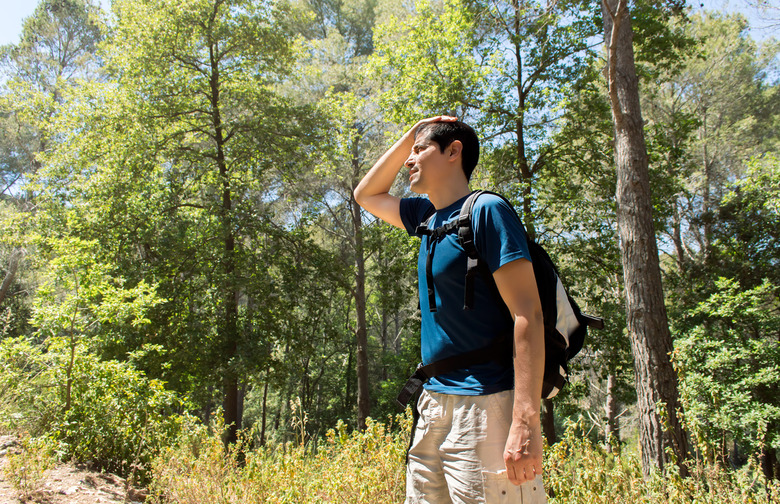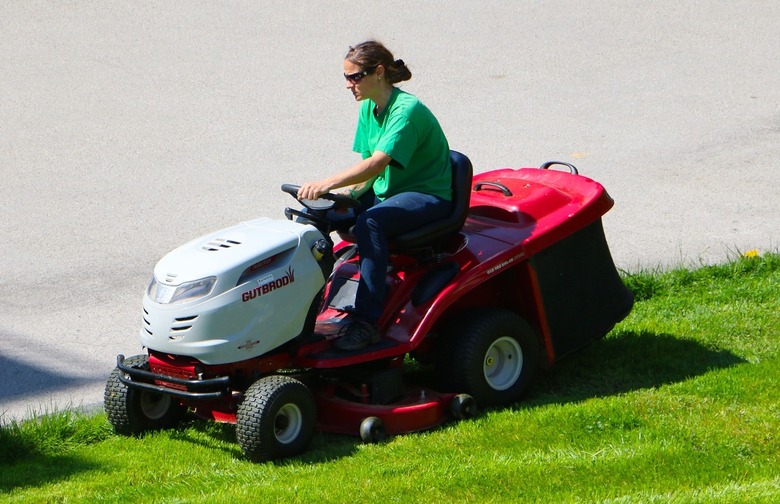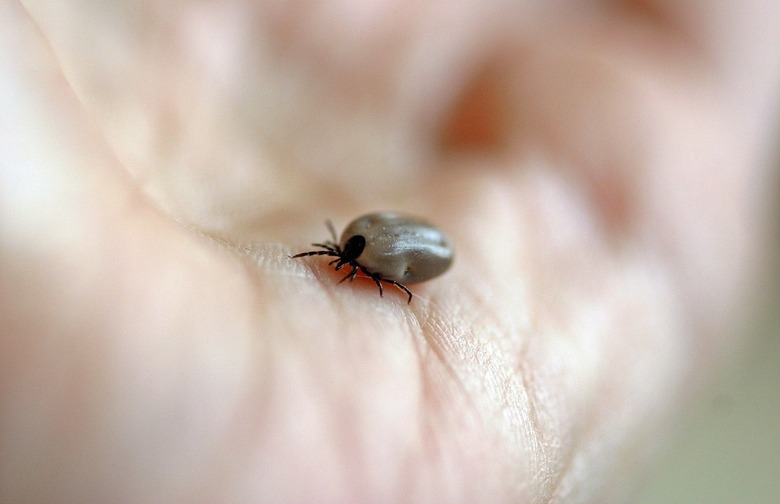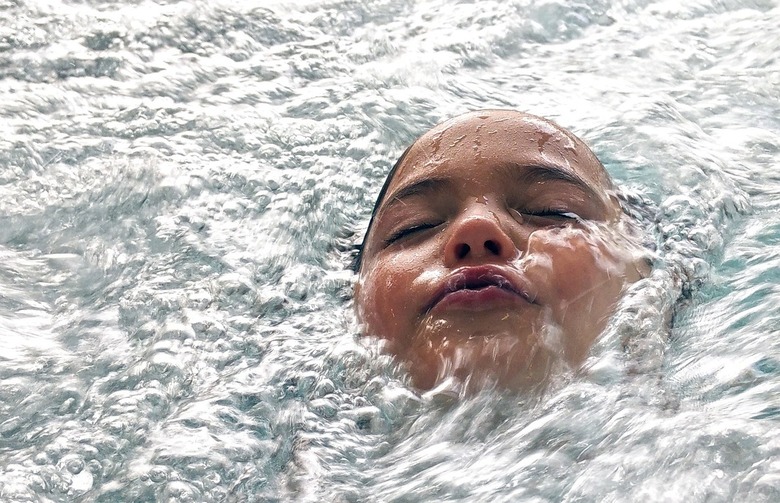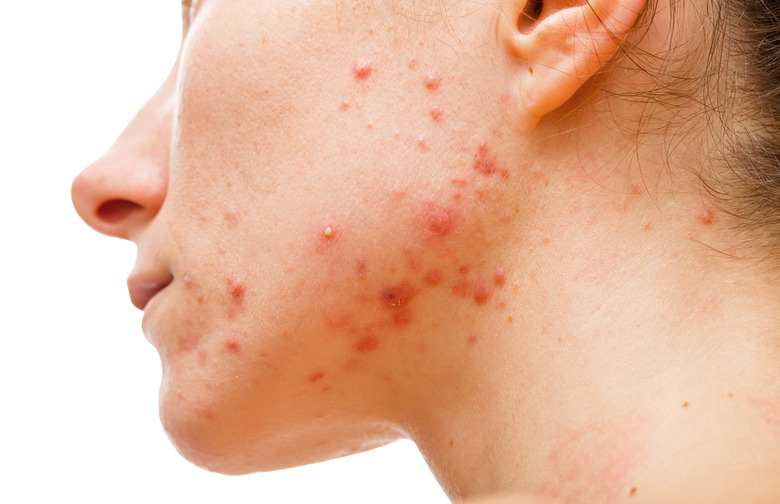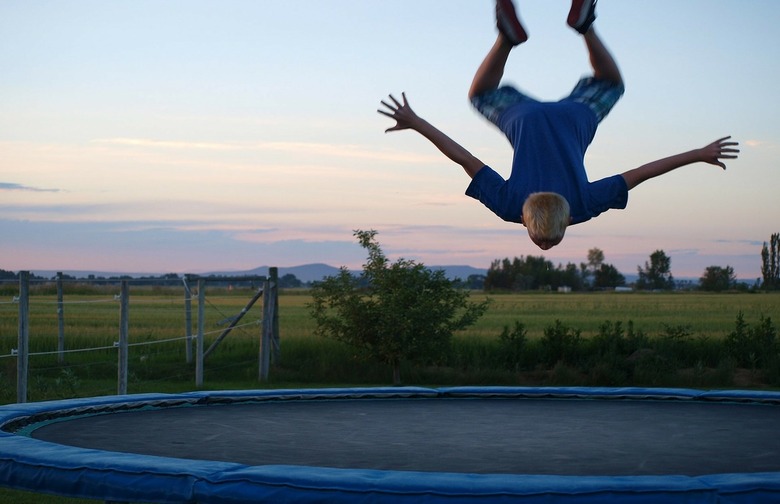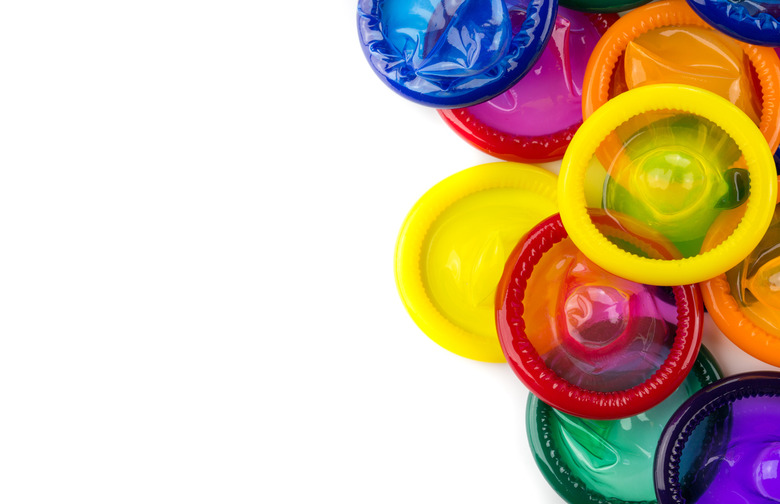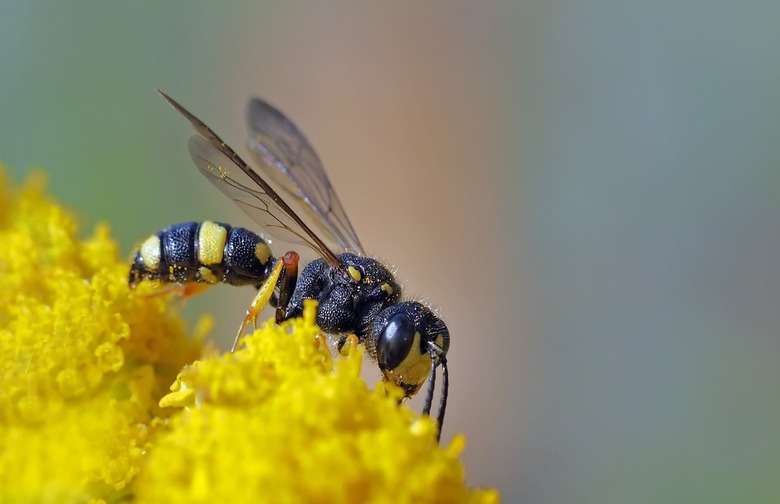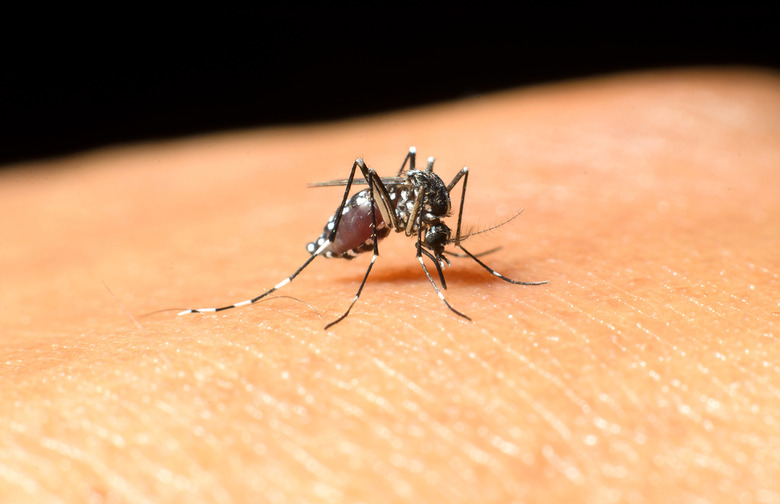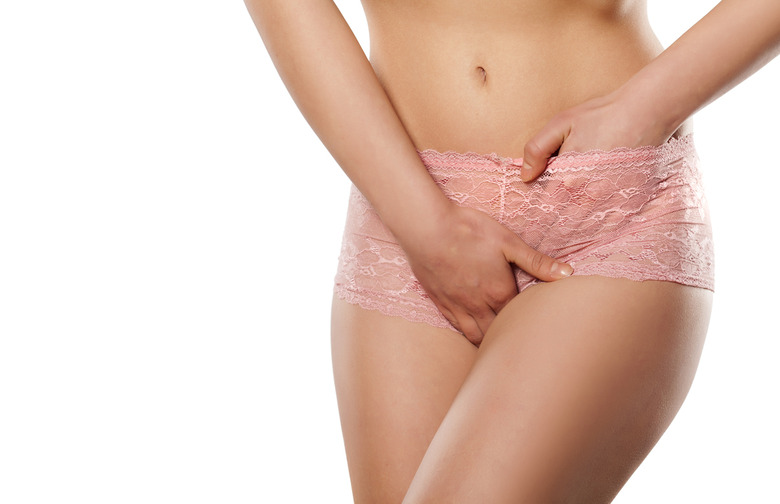The 26 Biggest Health Hazards You Face This Summer
In this summer season, a season that's ideal for frolicking in the outdoors, hosting barbecues (even those who avoid land-based meat can enjoy a good old BBQ by hosting an all-seafood summer get together), spending some time working on your short game, and relaxing on one of the best beaches for avoiding crowds, no one is truly ever safe. There are countless ways that even the most vigilant of hypochondriacs and worrywarts can face danger during summer.
We've pieced together 26 of the biggest health hazards that you may run into this summer. Knowledge is power, and learning what dangers may face you this summer can help you take the appropriate steps to keeping yourself out of harm's way.
Athlete’s Foot
Athlete's foot is a fungal infection of the skin on your foot, and it thrives in warm, moist areas. With increased sweating during the summer months and a higher likelihood of walking around in damp shoes, this contagious affliction can become almost viral (and not the cool, internet type of viral) rapidly.
Bicycle-Related Injuries
According to the Centers for Disease Control and Prevention, over 900 bicyclists were killed in the United States in 2013. An estimated 494,000 emergency room visits also occurred because of bike-related injuries. As much as you may just want to ride your bicycle (and ride it where you like), it'd behoove you to wear a helmet and follow proper biking safety protocol while riding around — in every season, not just summer.
Boating Accidents
No, we're not talking about swearing off of sashimi after being stranded on a boat for 10 days. Castaways aside, emergency room doctors around the country agree that drinking and boating are not a recipe for happy, healthy, uninjured humans. Boating on alcohol isn't much different than driving a car that awy. Once you factor in the fact that you can drown, become impaled on a rock hidden below the surface, or get sliced by a rapidly rotating propeller if tossed from a boat, drinking and boating doesn't sound like such a great option. Life jacket safety is of the utmost importance, so keep yourself, your family, and your friends accountable while cruising around the lake or the bay this summer.
Car Accidents
Traffic deaths tend to reach incredibly high numbers during June, July, and August. Why? More kids were home for summer, spending their days joyously driving around from point A to point B. More people have summer hours, driving to and from outdoor activities (such as dining in one of the 10 Best Restaurants for Outdoor Dining). With more people on the road, it's more important than ever to be aware of what you're doing while behind the wheel. That should be read as: Put your damn phone in the trunk while you're driving.
Dehydration
You can obviously become dehydrated year-round, but chances are increased during warmer temperatures when people tend to be more active. Don't let yourself become dehydrated. Instead, Stay Fit, Happy, and Hydrated With These 14 Warm Weather Hacks.
Drowning
You'll undoubtedly be spending more time in boats and on beaches during summer, so we'd be remiss not to warn you that drowning ranks fifth among the leading causes of unintentional injury death in the United States. If you're all pumped to hit the beach and drink a few beers, you should also consider the fact that drinking heavily before swimming can increase your chances of drowning. Save the booze for a dry, beached sunset hour, wear a lifejacket, and remember that not everyone is as strong of a swimmer as you (think you) are.
Eye Damage
Looking for a reason to splurge on a more expensive set of shades this summer? If you buy cheap sunglasses without proper UV protection, you'll be opening up your pupils by making things darker and allowing more eye-damaging UV rays in. Thus, investing in a pair of sunglasses with 100 percent protection from UV rays is your best bet. You can also eat your way to better eye health by trying these 13 Foods That Can Help You Maintain Good Eyesight, but if you're spending a lot of time on the water, consider looking for a polarized lens as well.
Falls During Home Renovations
You're not going to paint the exterior bricks on your home a lovely new shade of lavender when there's snow on the ground, and many may argue that you shouldn't be painting the historic brick on your home at all. If you chose to do so, you need to keep safety in mind. Painting, roofing, gutter cleaning, power washing, and any other warm-weather residential renovation that requires a ladder can be damaging and potentially fatal, so be sure to practice proper ladder safety.
Fireworks Injuries
Imagine how silly you'd feel telling the ER doctor that your hand was blown off because you were playing with fireworks. Those who don't have proper fireworks knowledge are at quite a high risk of experiencing accident-related injuries while using them improperly. We suggest leaving the pyrotechnics to the professionals and enjoying the show safely from one of our 9 Bars and Restaurants Where You Can Watch Fireworks.
Flip Flops
Regular old flip flops have become a summer footwear fashion statement, but they're actually not so great for your body. Their design requires you to grasp the shoes onto your feet, forcing your gait to change. This could potentially lead to issues with your legs, knees, hips, and back, not to mention an increased likelihood of tripping and falling.
Food Poisoning
Food poisoning puts about 300,000 people in the hospital every year, hitting its peak in the summer months. The World's Worst Food Poisoning Scares can take many forms, including listeria, salmonella, botulism, streptococcus, hepatitis A, and E. coli. In many cases, these outbreaks are caused by undercooked meat, uncooked items that have come in contact with the same surfaces as raw meat being consumed, and raw vegetables not being washed properly.
The USDA Food Safety and Inspection Service has this to say about the subject of food poisoning in summer:
"First, there are the natural causes. Bacteria are present throughout the environment in soil, air, water, and in the bodies of people and animals. These microorganisms grow faster in the warm summer months. Most foodborne bacteria grow fastest at temperatures from 90 to 110 °F. Bacteria also need moisture to flourish, and summer weather is often hot and humid."
And, additionally:
"Second, outside activities increase. More people are cooking outside at picnics, barbecues, and on camping trips. The safety controls that a kitchen provides — thermostat-controlled cooking, refrigeration, and washing facilities — are usually not available."
Golfer’s Elbow
Golfers around the country rejoice in having a little more daylight and better weather for golfing during the summer. There's nothing you can eat to prevent golfer's elbow from happening, even if you eat what PGA all-stars choose to eat. If you're working on your short game or trying to hone your hooks in at one of America's Best Golf Resorts this summer, you may experience a nagging pain on the inside of your elbow.
Grilling Injuries
As much as we want you to enjoy our 17 Easy Grilling Recipes for Summer Cooking, we still think that you need to approach your grill in as safe of a fashion as possible. Between 2007 and 2011, an average of 8,800 grill fires occurred annually. These fires caused an annual average of 10 deaths, 140 injuries, and $96 million in property damage, according to the National Fire Protection Association. Keep yourself, your family, and most importantly (to some) your grilled food safe by following our nine grilling safety tips this summer. One tip: Don't let gas build up under a closed lid as you're turning the grill on. This can increase the chance of an explosion occurring.
Heat-Related Illness
Heat is the top weather-related killer in the United States, accounting for about 700 deaths a year. Cramps, heat exhaustion, heat rash, and heat stroke are more likely to happen during intense moments of increased body temperature during the summer, so don't assume that you're safe because you're young(ish) and go to the gym (sort of) frequently: No one is safe from heat-related illnesses.
Lawn Mower Injuries
We urge you to regard your lawn mower as you would Sweeney Todd or Edward Scissorhands or any other character played by Jonny Depp that has blades and intends to harm you. In addition to stones, sticks, and other inanimate inhabitants of the yard being hurled haphazardly toward you from your lawn mower, toes, hands, fingers, and limbs can get caught in the blades. Don't tinker with your lawn mower or chainsaw, and if you don't know how to use a stump grinder please stay far, far away from it while it's in use.
Lyme Disease
The Centers for Disease Control and Prevention estimates that about 300,000 Americans (or one in 1,000) are diagnosed with Lyme disease annually. In 2012, 95 percent of Lyme disease cases were reported in Connecticut, Delaware, Maine, Maryland, Massachusetts, Minnesota, New Hampshire, New Jersey, New York, Pennsylvania, Vermont, Virginia, and Wisconsin. We suggest throwing on long sleeves and pants the next time you go out for a jaunt in the woods, especially if you live in any of the aforementioned states.
Poison Ivy, Sumac, and Oak
About 85 percent of people who touch poison ivy, sumac, and oak develop a rash, according to the American Academy of Dermatology. It affects millions of Americans annually, and the only way to avoid it without leaving the country would be to isolate yourself in Alaska or Hawaii (neither location being a bad place to spend summer).
Recreational Water Illnesses
Bacteria that cause gastrointestinal, skin, eye, ear, and respiratory infections may all be lurking beneath the surface of your local swimming hole. The hardiest of bacteria can survive for days even in the most well-kempt chlorinated pools. Accidentally swallowing water that's been contaminated with feces-based bacteria increases your risk of becoming sick.
Skin Breakouts
While sweat may not clog pores, it can certainly contribute to pimples and blackheads. One diet-based remedy for this comes in the form of eating plenty of sebum-normalizing foods (fresh vegetables, omega-3 fatty acids, and lean protein, as well as drinking plenty of water), and we have other ways to fight bad skin with food and drink. Those of us who produce higher levels of sebum have more oily complexions.
Sunburn
Did you know that your risk for melanoma doubles if you've had just five sunburns in your life?
According to the Skin Cancer Foundation, every year, over 5.4 million cases of non-melanoma skin cancer are treated in in the United States in more than 3.3 million people. There are more new cases of skin cancer each year than the combined incidence of breast, prostate, lung, and colon cancer. Astonishingly, over the past three decades, more people have had skin cancer than all other cancers combined. Don't let yourself get sunburned: Use plenty of sunscreen, applying multiple times throughout your sessions outdoors. If you have sunburn, try one of our 5 Sunburn Remedies You Can Find in Your Kitchen.
Swimmer’s Ear
Swimmer's ear, an ailment known to year-round swimmers and summer-only swimmers alike, is caused when water enters the ear canal and becomes trapped by ear wax. It can lead to ear infection in more serious cases.
If you find yourself afflicted by swimmer's ear, try applying tea tree oil, grapefruit seed oil, garlic-infused olive oil, or a mixture of rubbing alcohol and white vinegar to your ear. Lie sideways, allowing the mixture to sit in your ear for a few minutes, and then flush it out with warm water.
Trampoline Injuries
Between 2002 and 2011, there were more than one million trampoline-related injuries reported in emergency rooms across the United States. If you'd like to avoid bruises, strains, sprains, fractures, and dislocations, especially if you have young children, be sure to enact and follow strict trampoline safety protocols at your home.
Unprotected Sex
Summer romances are great. Sexually transmitted infections aren't. Avoid alcohol-induced hookups and other unwise acts of passion this summer in order to stay healthy for the long haul.
Wasp, Bee, and Hornet Stings
Many of us have been stung by a bee or a wasp and survived, but this isn't the case for everyone. As important as it is to save our dwindling bee population, about three percent of the adult American population has a life-threatening allergy to stings from such winged critters.
Think you're safe after using an epinephrine pen? Think again: Many reactions can outlast the pen's effects, so even after using an epi-pen you'd be wise to take a visit to the emergency room as soon as possible.
West Nile Fever
Between 1999 and 2012, an average of 2,648 West Nile cases were reported to the Centers for Disease Control and Prevention each year. In 2013, all 48 contiguous states (and the District of Columbia) had confirmed cases of West Nile, but Midwestern and Southern states had higher rates of incidence. The virus can inspire a serious neurological infection that can cause brain inflammation, and those older than 50 or with a weakened immune system are the most likely to develop such an infection. How can you stay a bit safer? Avoid these 9 Foods That Make You Tastier to Mosquitoes.
Yeast Infections
Yeast thrives in damp, dark, warm environments. A bathing suit bottom, unfortunately, creates prime conditions for a yeast infection. Further, many women use deodorized tampons during the summer, altering the bacteria of the vagina and potentially inspiring a yeast infection. Here's a quick fix: Battling yeast infections is one of our 31 Clever Uses for Coconut Oil.
